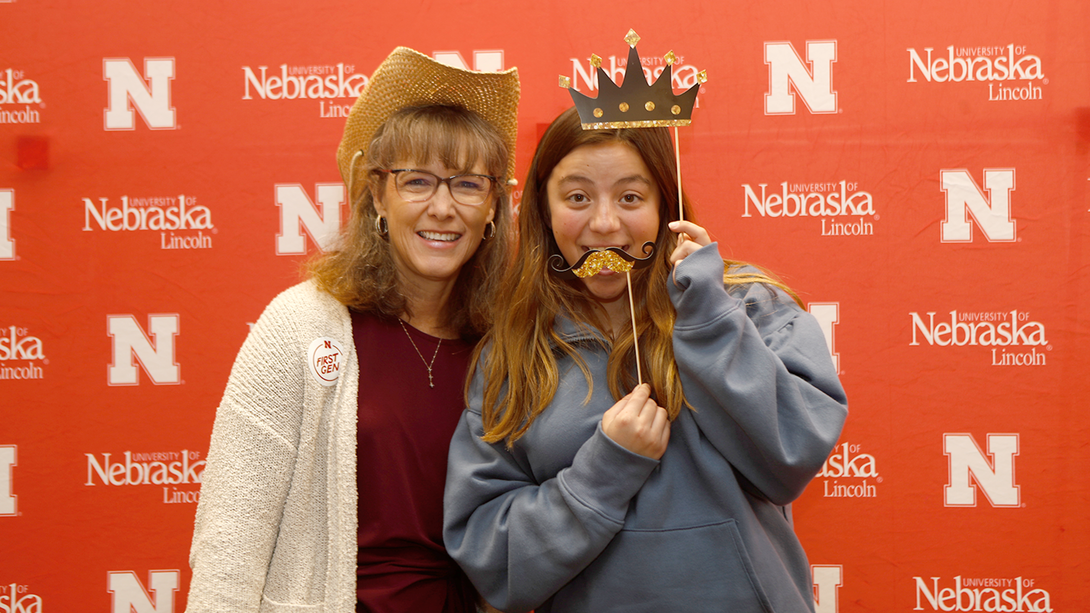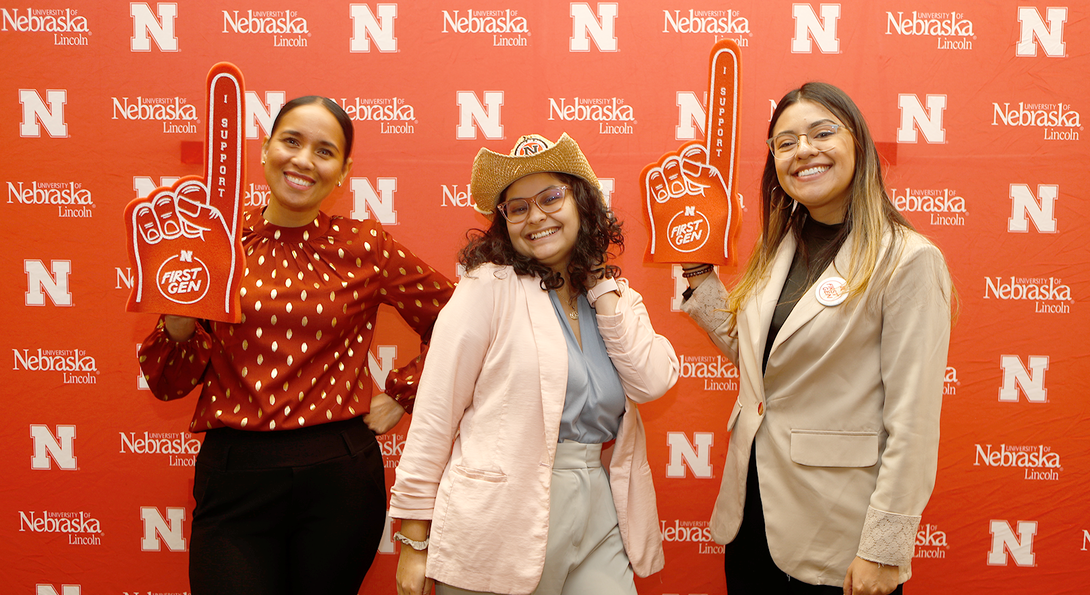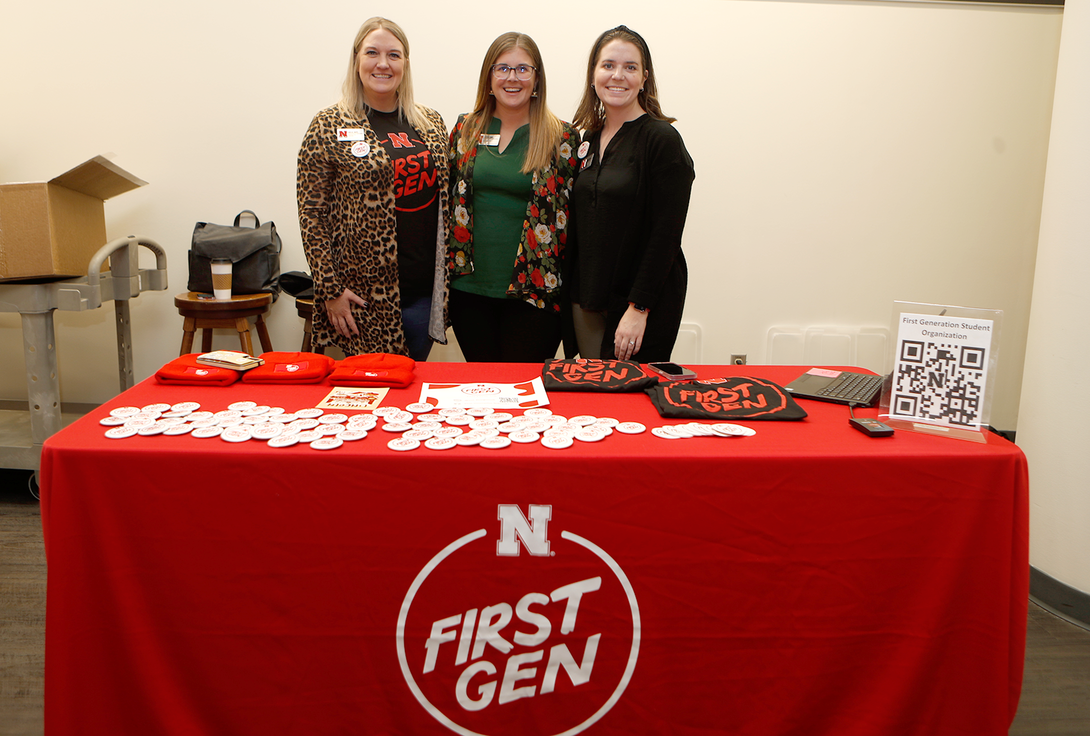
Since its inception in 2017, First Generation Nebraska has been helping first-gen students find their place and way at the University of Nebraska–Lincoln.
Over the past five years, First Generation Nebraska has contributed to the university’s First-Forward Institution designation, and its advisory board has grown to include 35 students, faculty and staff members who meet throughout the semester to discuss ways to support first-generation students. First Generation Nebraska works to educate students on what it means to be a first-generation student and provides students with the resources they may need, including financial assistance.
National First-Generation College Student Day is Nov. 8, and the university holds various celebrations throughout the week. During the first-gen celebration week, which runs Nov.7-11, First Generation Nebraska is running a fundraising effort to support stipends for first-generation students to participate in internships and other experiential learning opportunities. Those interested in learning more can visit the campaign page.
Throughout the week, First Generation Nebraska and other campus entities are also hosting various events to celebrate first-generation students.
First-generation students are defined as students whose parents did not graduate from a first-year college or university. One in four students at the University of Nebraska–Lincoln identify as first-generation, and those students are in good company with the likes of Chancellor Ronnie Green and Head Volleyball Coach John Cook

“Because Nebraska is a land grant institution, our mission is really access and opportunity,” said Amy Goodburn, co-chair of First Generation Nebraska, senior associate vice chancellor and dean of undergraduate education. “So it’s really critical to provide access to students whose families don’t have a college going history. We know just from looking at our research and our data that our first-gen students are not always as successful as those who have had parents to mentor them along the way of what it means to do college successfully.”
Contributing to the success of first-generation students also supports their communities, Goodburn said.
“We want to celebrate the fact that these students are here because we know that when they get their degree it can really make an impact not only on their life, but on the lives of their family and community members,” Goodburn said. “They serve as role models for their communities when they go back to those communities, so it’s really critical that they are successful here.
“First-generation is an increasing number of our high school demographic is changing in the state and so many of them more of them are coming from families who don’t have college degrees. So it’s really important to both emphasize the university’s a space that wants them to come here and we want to support them but then we have to practice what we preach right and then really provide those resources and support to help them be successful.”

First Generation Nebraska provides support for these students through initiatives such as the First Generation week events, which include a fair, fireside chat with OASIS, share-a-meal event, and show your first-gen pride day. Many of these events are intended to facilitate conversation among first-gen students, faculty and staff during which they can talk about the student experience, share personal experiences and ideate ways to improve first-gen support services.
“We trying to partner more with other campus entities and host more of these events where people can come in and stop by for this opportunity where folks can chat with other students and gain an understanding of some of the things that they and other students have gone through as first-gen,” said Steven Jara, co-chair of First Generation Nebraska.

From the start, First Generation Nebraska was focused on raising awareness for first-generation students across campus and has grown to provide many initiatives to celebrate and support them. Moving forward, First Generation Nebraska’s advisory board is looking to develop a well-detailed strategic plan centered around providing more holistic resources and increasing its impact.







